“We all fear what we do not understand.” – Dan Brown
Nothing holds more true for businesses, especially when it’s about transforming traditional ways with new age technology and tools. One of the prominent examples of this is, HR Technology, misunderstood and often neglected.
Since the emergence of HR tools in the late 20th century, many businesses have been hesitant to trust them. As skepticism grew, so did the rumors about the failures of organizations that adopted the technology early. In reality, these rumors were nothing more than myths.
With HR technology continuing to grow, it’s time to dispel these myths and help businesses realize the true potential of HR tools. Here are 5 common myths associated with HR technology and their realities.
1. It’s too expensive to implement HR software.
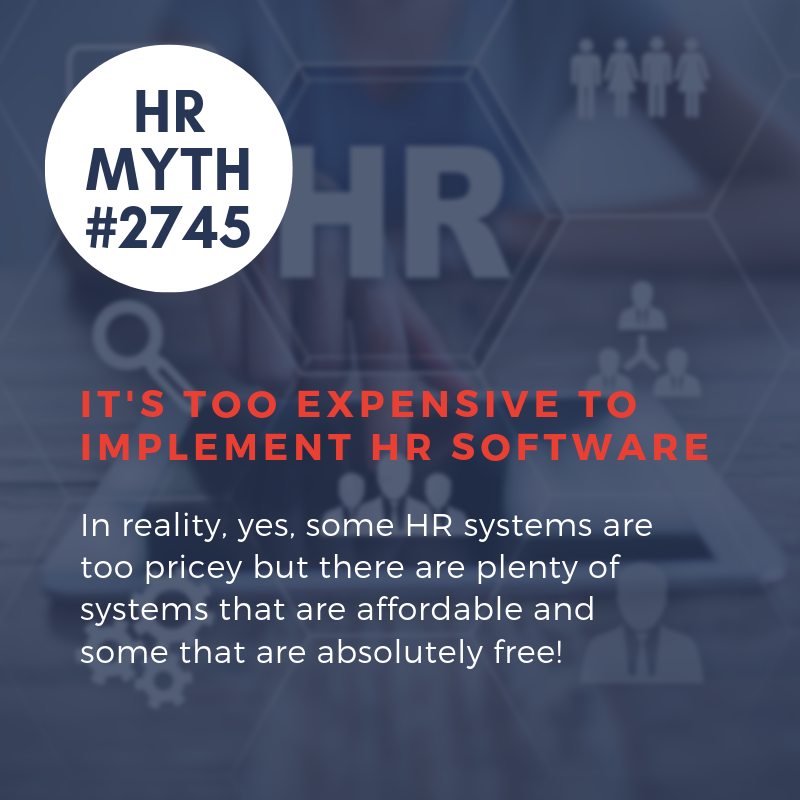
There are enough costs that any and every business has to bear. From licensing fees to paying out employees to paying rents and the list keeps going on. Amidst of all these expenses, it’s easy to wonder if it is necessary to burden your budget over an expensive HR tool?
While it is true that few HR systems in the market are overpriced, there are enough systems available that are affordable and even free that can automate all HR tasks.
HR software reduces the number of hours spent on repetitive tasks, allowing your team to focus on more important tasks and helping to increase your organization’s bottom line.
2. HR tools are only needed in large organizations.
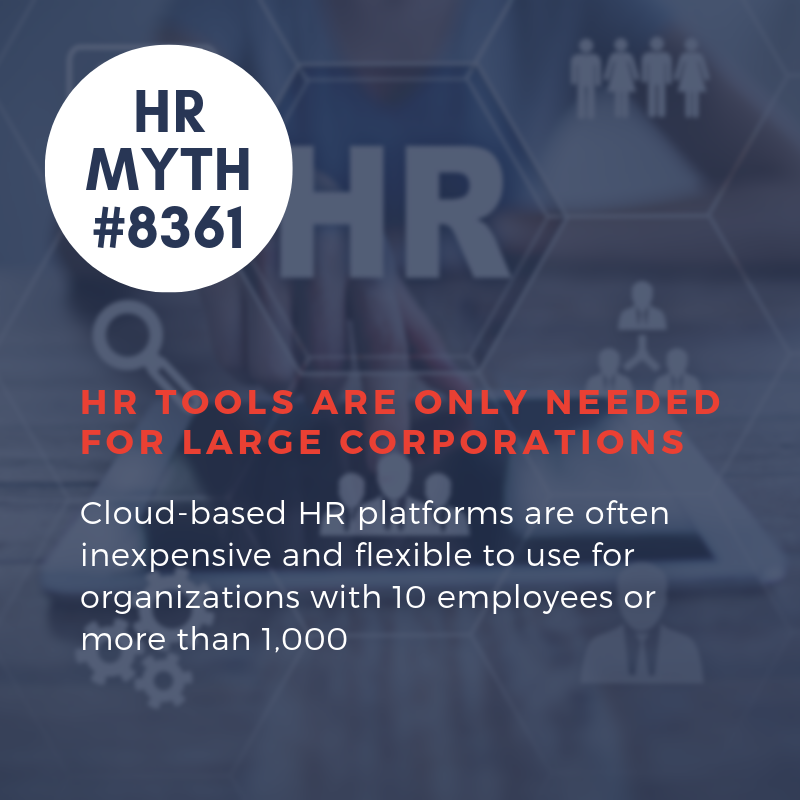
It was only true when HR tools had to be hosted on-premise resulting in additional costs to set up the infrastructure and implement the system.
Organizations can choose inexpensive cloud-based HR platforms that allow them to select the features/modules they require and discard the rest.
This has made cloud-based HR tools apt for organizations with 10 employees or more than 1,000 employees and enabled startups & small businesses to adopt new-age tools and automate HR workflows.
3. One must be a technology expert to use HR tools.
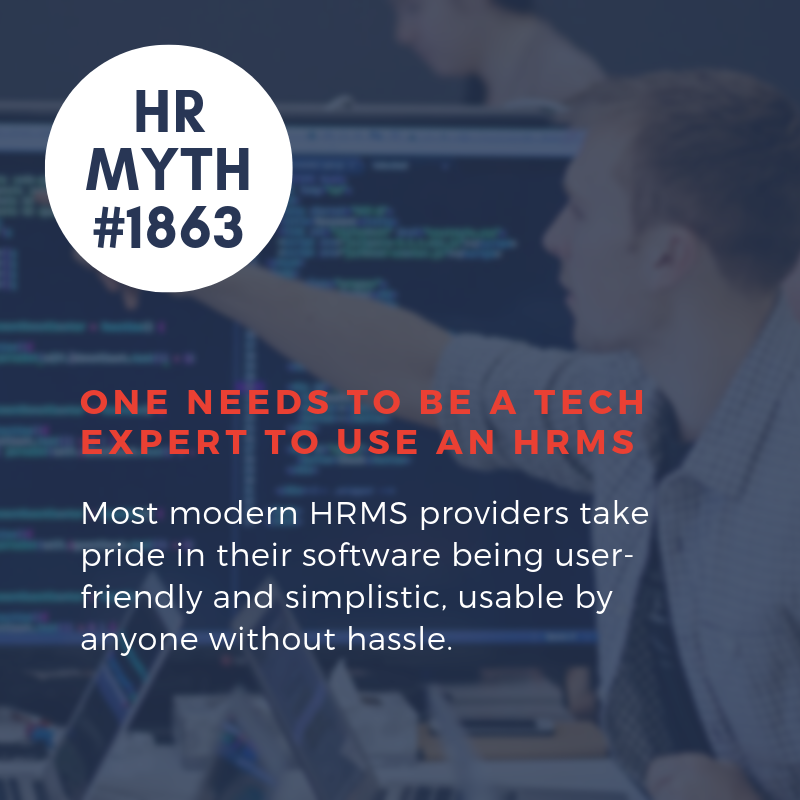
Technology, especially in the workplace, drives most of the things in our surroundings now. The rise of email, adoption of excel sheets, using a CRM system, or a collaboration tool such as slack, there is technology everywhere. One of the main reasons for such a tech upheaval is due to simple and easy-to-use systems built by software vendors for mass adoption.
Most HR systems in the market are intuitive with a simple user interface. Most software vendors ensure that anyone in the organization can easily navigate through their systems with their level of simplicity.
4. Data stored on cloud-based software aren’t safe.
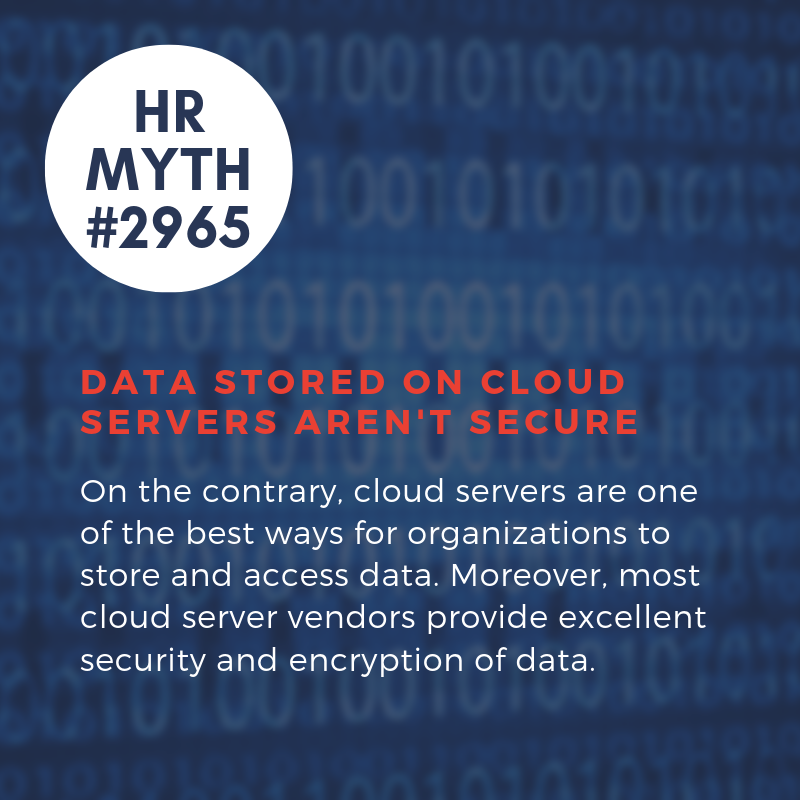
We all witnessed the security breach that shook the world’s largest tech conglomerate, Apple. Neither are we oblivious to the flurry of data breach scandals at Facebook. Over the past few years, there have been numerous cases of data breach and security threats. And these security threats could leave the best organizations vulnerable.
Despite numerous cases of data breaches, cloud solutions are the safest ways for organizations to store and access data. Most cloud server vendors provide excellent security and encryption features to safeguard the data stored.
5. HR tools reduce “human” interaction between HR teams and employees.
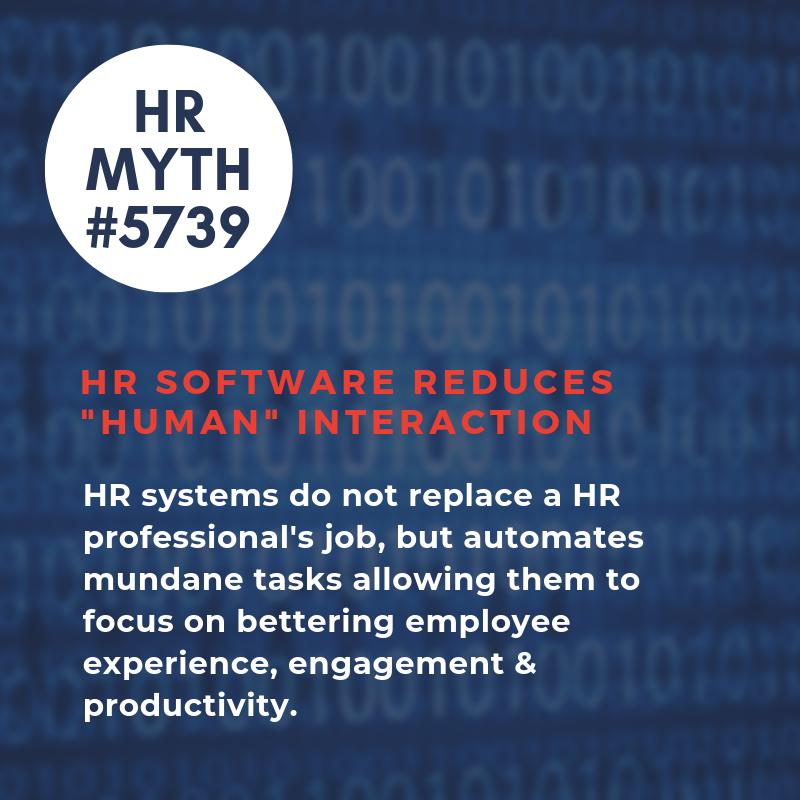
Right from communication to managing a to-do list, today, we’re immersed in technology. Though new age tools promise to make the world more connected, we as species have never felt more disconnected. And, it’s common for such fears to creep in when deciding to adopt an HR software for your organization.
However, HR systems do not replace your HR teams. Instead, it helps free their productive hours by automating mundane tasks. This allows your HR team to be more involving and put in place strategies to increase engagement and productivity.
HR software isn’t a fancy new tool that is a luxury for an organization. Instead, it is increasingly becoming a necessity for organizations to automate redundant HR tasks and help their teams achieve more.
Any new technology that crops up is bound to have some nay-sayers. Those who’d live happily in their bubble of the past failing to adapt to changing times. When selecting any tool for your business, it’s important for you to shift your focus away from all the noise and the baseless myths, and focus on what’s best for your organization.

